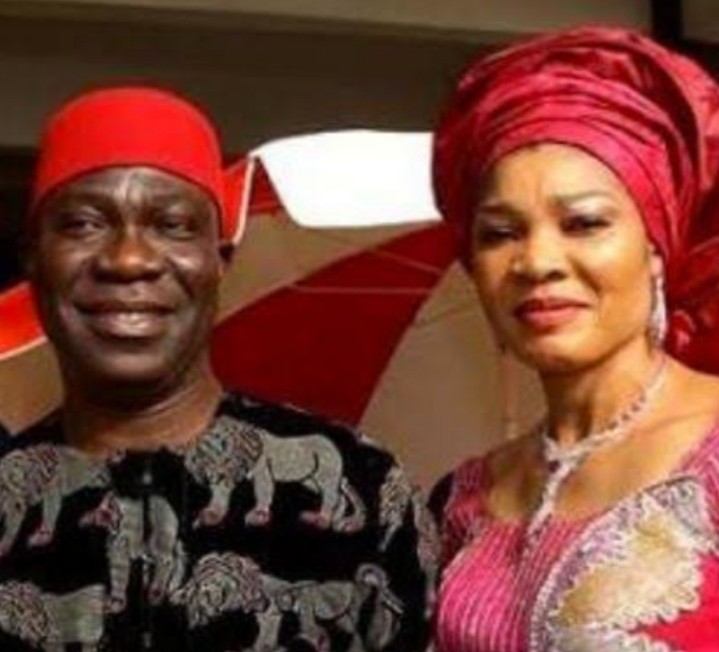
Senator and Mrs Ike Ekweremadu
By Emeka Ugwuonye, Esquire
Finally, we got to the moment that most people have waited for in anxiety, anticipation and various mixed emotions. Senator Ike Ekweremadu and his wife, Beatrice Ekweremadu, will be sentenced on Friday, the 5th of May, 2023, having been both convicted of human trafficking offences in the United kingdom. Most likely, they will face jail terms to be served in the United Kingdom, far away from home and their locus of power and influence.
The offense for which they have been convicted is one that substantively carries life imprisonment, backed by a vigorous enforcement policy. However, they were convicted only of conspiracy to commit that offense. Often, punishment for conspiracy is mirrored to the punishment for the substantive offense. The Ekweremadu facts are unique in this specific genre of offences. They are the first conviction on such facts since 2015 when the British Modern Slavery Act 2015 was passed into law – traveling of a victim for the purpose of exploitation, to wit; organ harvesting.
[the_ad id=”16914″]
It is difficult to predict with confidence the precise punishment the court will impose on the Ekweremadus. Against the backdrop of a maximum of life imprisonment and a minimum of 10 years imprisonment, it is really a tight rope for the Ekweremadus. Yet, it is hard to rule out the impact of the several mitigating factors that stand in their favor. Such factors are:
(1) Their age: Senator Ekweremadu is 60 years old and his wife is 55. Long jail term for people of that age is of doubtful value to the society.
(2) The absence of any prior criminal record: Ekweremadus are not criminals. They do not fit the profile of people the law would like to protect the society from by issuing long sentences.
(3) The unique humanitarian motive behind the crime: The Ekweremadus did not engage in this offense for the purpose of making money or as an enterprise. Rather, they were trying to save their daughter, albeit in an unlawful way.
(4) The overall impact on the Ekweremadu family: Putting both parents in prison will leave their children almost like orphans and without the crucial parental guide they need to grow and will leave a sick child totally helpless.
(5) The fact that Ekweremadu was at the time of arrest a senior political figure in a friendly country (Nigeria): Even though Nigerian Government has not been known to have actively pursued diplomatic solution for Ekweremadu, the British court is not unaware of the sensitivities arising from his position in Nigerian politics.
[the_ad id=”16918″]
All this taken into consideration, there is hope that the court will like to impose the minimum punishment possible. We just don’t know exactly what that is. Right from the beginning, the court and the prosecution had viewed this offense as one with gravity, which was why bail was never granted. All the way from arrest through trial and conviction, the court did not grant Ekweremadu any special treatment. Now that they have been convicted, it is the best moment to show whatever mercy exists within the British Justice. He and his wife are now totally at the mercy of the court and we expect to hear Ekweremadu make profound pleas for leniency on Friday. If well coached by his lawyers, he will in his statement before sentencing, admit his role in the crime, express profound remorse and apology to the victim, and plead for mercy on his family. All this will register somehow, resulting in the greatest leniency possible.
[the_ad id=”16917″]
Having said all the above, Ekweremadu trial and conviction will mark the catastrophic fall from grace to grass of one of the most enterprising politicians in Nigeria since the end of military rule. In Nigeria, when we describe a politician as successful, it means that such a politician knows how to stay in office for many years. Ike Ekweremadu was successful by that standard. But was Ekweremadu a successful politician otherwise? Only history will judge that. But his dramatic exit from politics shall remain a test case for many scholars of politics for many years to come. The project may be appropriately titled the dramatic rise and fall of Ike Ekweremadu, the politician with a most parochial understanding of power. Like the proverbial rider who chose to ride the tiger, Ekweremadu ended up on the tiger’s lunch menu.
Ekweremadu’s dramatic exist and the bizarre details of his story is an adverse reflection on the poor state of the people of Enugu State, my people. We are gentle, humble and meek. We are also naïve in our unique ways. These descriptive attributes of Enugu people have confirmed by the fact that for a whole year that Ekweremadu sat in the British prison, the people of Enugu West senatorial district had no representation in the Nigerian Senate, and everybody went about it as if nothing happened. It is also a sad reflection on Nigeria and its Senate. It actually means that the Senate and the Senators are not as relevant to the ordinary people as one would expect. As seen with Ekweremadu’s absence, the Nigerian people can do without their Senators. In fact, the relationship between the people and their Senators has been apparently parasitic on the people. Hence, when a Senator gets arrested overseas, the people tend to rejoice. What a shame!
[the_ad id=”16920″]
Also, the fact that a senior Senator could get arrested, tried and convicted in a country that is supposed to be friendly with Nigeria and Nigerian political leaders were not able to invoke any of the vast diplomatic options to help one of their own portrays the Country as a banana republic. For years now, Nigeria has been exporting its criminal defendants to Britain for trial. In the case of Diepreye Alamieysiegha, then Governor of Bayelsa State, President Obasanjo sent Mr. Bayo Ojo, his Attorney-General, to plead with the British Government that Britain should try Alamieysiegha instead of sending him back to stand trial in Nigeria because, according to Obasanjo, “Nigerian courts are corrupt”. That was as Nigerian government’s counter to Alamieysiegha’s request that he be tried in Nigeria. Also, in the case of James Ibori, former Governor of Delta State, President Jonathan was actually relieved that Ibori was tried in UK rather than in Nigeria.
With such precedent, Nigeria had rendered itself unable to persuade anybody in the UK to consider any friendly measures that might have lessened the burden on Ekweremadu. This writer recalls vividly advising the Nigerian Government that their position on Alamieysiegha case, as stated above, was going to hurt Nigeria down the line. That seems to be happening now with Ekweremadu. But maybe that is good for the country in a different way.
[the_ad_placement id=”advert-1″]
As everybody holds his breath waiting to know the number of years of imprisonment the British court will sentence Ekweremadu to, Eculaw is preparing special reports on this case. We shall follow the case inch by inch till the end. Our media representative will be in court on Friday to observe every minute of it and how the Ekweremadus will take their fate.







